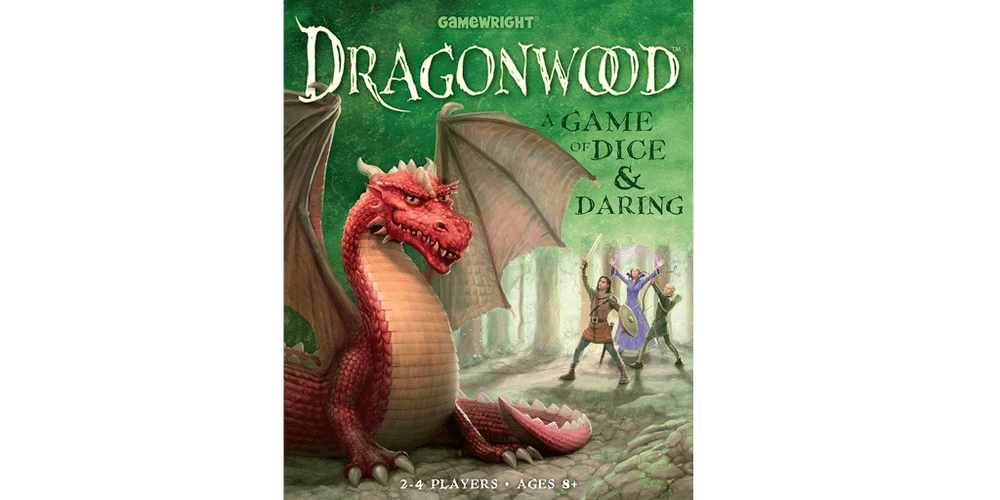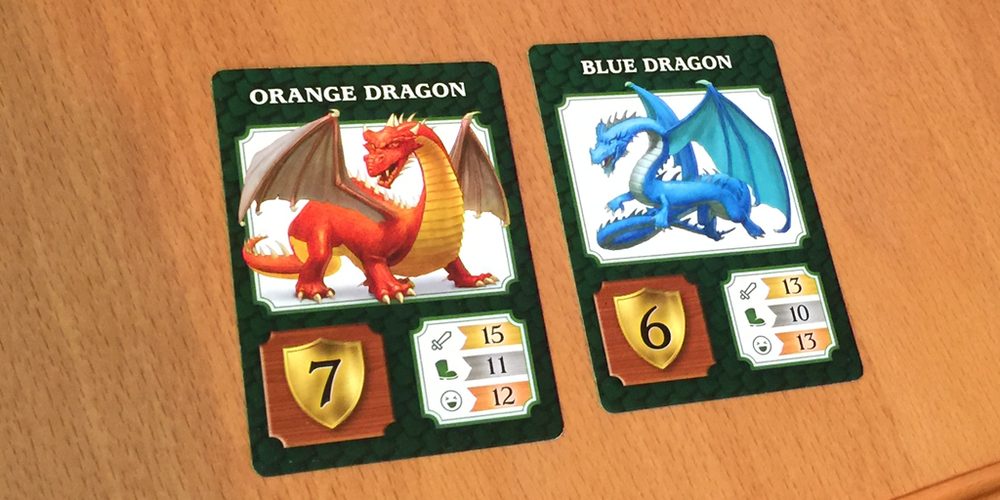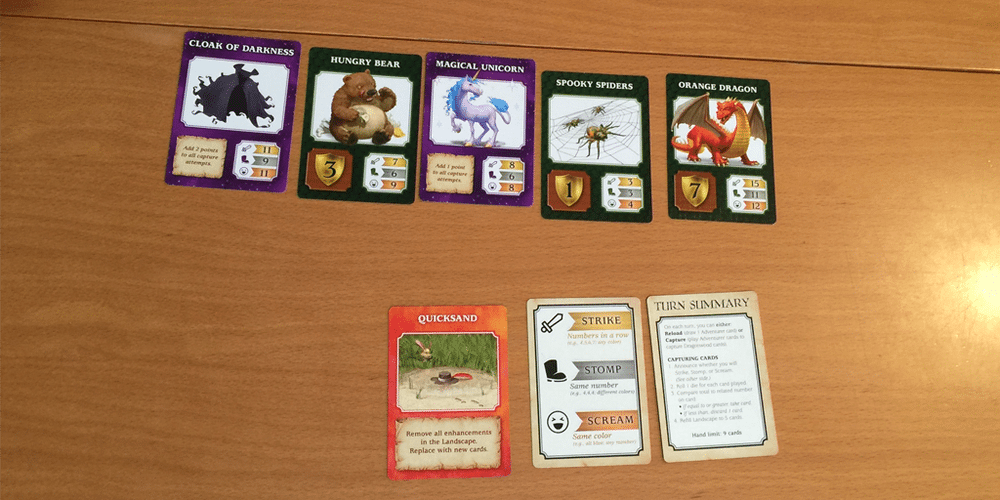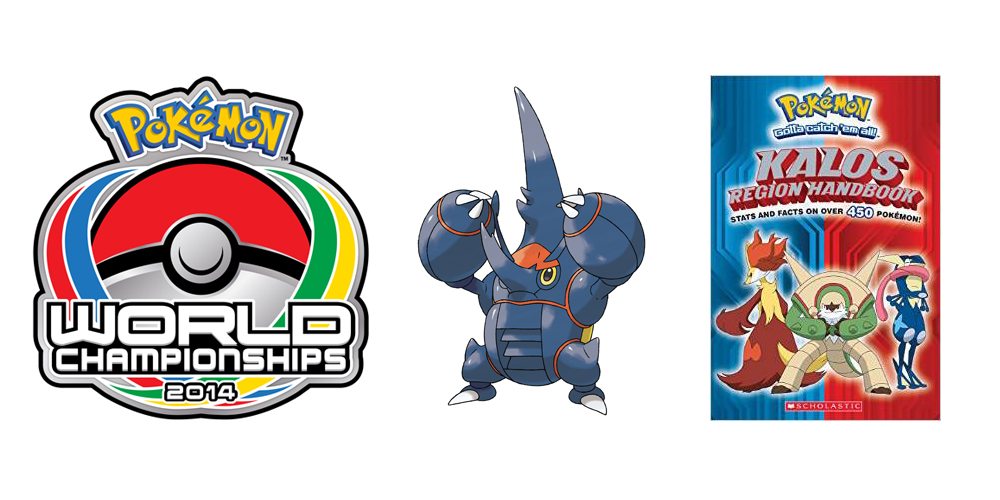
Dragonwood is a Mensa Select game from Gamewright featuring a simple premise: collect numbered and colored cards, which must be matched up in order to defeat the monsters of Dragonwood, including its two dragons!

Opening Dragonwood revealed beautiful art on two decks and a set of standard-quality dice. I was drawn in by the wonderful images on each card. The dragons pictured above are my favorites. The impeccable shading and coloring made me very happy to explore the rest of the deck.
Dragonwood‘s mechanics are easy enough for young kids, and nuanced enough adults. On each player’s turn they may either draw a card from the Adventurer Deck or attack a card from the Dragonwood Deck. Adventurer cards are colored and numbered. To make their attacks, players must use sets of Adventurer cards to Strike, Stomp, or Scream. When a card is defeated, it is added to your collection. At the end of the game, the winner is the player with the most points marked on their cards.

To Strike, players must play cards in straights, regardless of color. Stomping is for matched numbers (such as four 9s). Screaming is when the colors match, regardless of number. For each card in the run, the player receives a die to roll. The player puts out a set of cards, rolls the dice, and end with a score that is used to attack the Dragonwood monsters.
In the example above, the player decides to Strike an opponent. She is given 4 dice for her 4-card run. She then rolls her four dice, and the result is her score. If the score is higher than the number next to the sword on the opposing card, she claims it. If not, she discards one of her cards, and puts the others back in her hand. With her score of 11, she can defeat all but 4 monsters in the entire deck with her Strike. That’s a great score!
When players don’t have enough cards, they must spend their turn drawing a card; this is called “reloading.” Sometimes, all players may go around several rounds doing nothing but reloading. Because there is a card limit of 9 cards, players will do a lot of reloading in order to have runs. If a player has 9 cards and decides to reload, bringing them over 9, they must discard anything over 9 before their turn ends.
To move things along, there are “draw 2” cards called Lucky Ladybug. These help move players along, but eat through the deck a bit faster. There is some strategy to not refilling, though. As soon as the deck has been used up, it is shuffled to make a new deck. Once it’s been used up twice, the game ends after each player takes one more turn.
Players can also defeat the two dragons in order to end the game. As soon as the second dragon is defeated, the game is over. With this end-game scenario, nobody takes further turns. The dragons are intentionally put in the bottom half of the deck, so the game doesn’t end too soon.

The Dragonwood deck has more than just monsters to challenge the players, though. Enhancements can also be found, purple cards that change the way your attacks work. For a little bit of random, Event cards affect everyone as soon as they are put into play. Events are red-bordered cards that can cause players to draw more cards, discard cards, and more. Enhancements and Events can suddenly change a player’s strategy when their advantages or disadvantages are altered.
Dragonwood is best played by kids over 6, though the manufacturer suggests 8+. I normally play one game with kids who’ve never played before, but after that, it’s a fast game that doesn’t need much maturity to master. Most games take between 15 and 25 minutes, depending on how chatty the group is.
The box is a little bigger than necessary, but is not a large box, to be sure. I enjoy it most when we have 4 players, but it can be played with as few as 2. Dragonwood is best suited for players who like rapid turns, but it is an acceptable game to play with folks with Analysis Paralysis – folks who take long turns. At $14.99, it’s a great gift for any level of tabletop gamer, and has great replayability.
The author received a unit for review, but his opinion remains that Dragonwood is a great game, and sees a lot of play.



